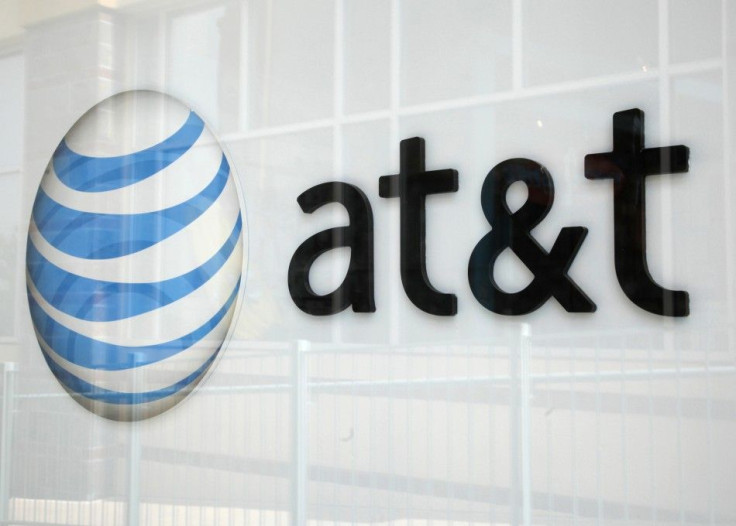U.S. DOJ Files Antitrust Lawsuit to Block AT&T and T-Mobile Merger

A proposed $39 billion merger between cellular phone giants AT&T and T-Mobile could be facing a failure as the U.S. Department of Justice on Wednesday filed an antitrust lawsuit to block the deal.
The lawsuit was filed in the U.S. District Court of Washington.
The Justice Department said its move is to ensure that competition remains and that everyone to include consumers, businesses and the government continues to get high quality, competitively priced mobile wireless products and services.
The Department filed its lawsuit because we believe the combination of AT&T and T-Mobile would result in tens of millions of consumers all across the United States facing higher prices, fewer choices and lower quality products for their mobile wireless services, said Deputy Attorney General James M. Cole. He was speaking at an AT&T/T-Mobile press conference.
Consumers across the country, including those in rural areas and those with lower incomes, have benefitted from competition among the nation's wireless carriers, particularly the four remaining national carriers, Cole added. This lawsuit seeks to ensure that everyone can continue to reap the benefits of that competition.
AT&T plans to fight the lawsuit.
Wayne Watts, AT&T's senior executive vice president and general counsel, issued a statement on the company's Web site stating that his company is both surprised and disappointed the actions of the Justice Department on Wednesday.
Watts said he is surprised and disappointment because the company has met with the Justice Department and there wasn't any indication from the department that defends the best interests of the U.S. that it was contemplating such action.
We plan to ask for an expedited hearing so the enormous benefits of this merger can be fully reviewed, Watts said in his statement. The [Department of Justice] has the burden of proving alleged anti-competitive affects and we intend to vigorously contest this matter in court.
Watts said he believes the facts will guide any final decision and that the facts are clear.
According to Watts the fact are that the merger will:
- Help solve our nation's spectrum exhaust situation and improve wireless service for millions.
- Allow AT&T to expand 4G LTE mobile broadband to another 55 million Americans, or 97 percent of the population; and
- Result in billions of additional investment and tens of thousands of jobs, at a time when our nation needs them most.
We remain confident that this merger is in the best interest of consumers and our country, and the facts will prevail in court, he added.
Cole said all Americans are reaping the benefits of such incredible technology because there has been what he calls fierce competition in this industry. He said this kind of competition has brought all Americans innovative and affordable products and services
Right now, four nationwide providers account for more than 90 percent of the mobile wireless connections in America, and preserving competition among them is crucial, Watts said.
The Federal Communications Commission told Bloomberg that it was continuing its review of the proposed $39 billion acquisition of T-Mobile.
The record before this agency also raises serious concerns about the impact of the proposed transaction on competition, FCC Chairman Julius Genachowski said in an e-mail to Bloomberg on Wednesday.
An FCC official also told Bloomberg that the agency has never approved a significant merger being challenged in court by the Justice Department because the agency's review isn't concluded.
The FCC's Web site state that the agency is currently on the 88th day of a review that is to take 180 days.
The agency can also stop and restart its informal 180-day clock, and actually did so between July 20 and Aug. 26 as it was waiting for additional data from AT&T.
The agency's process is not complete, Genachowski told Blommberg.
AT&T and T-Mobile are currently in a head-to-head competition in 97 of the nation's largest 100 cellular marketing areas, according to Cole. The two companies also compete nationwide to attract business and government customers, he added.
Were the merger to proceed, there would only be three providers with 90 percent of the market, and competition among the remaining competitors on all dimensions - including price, quality, and innovation - would be diminished, Cole said.
Cole noted that the Justice Department's complaint points out that AT&T felt competitive pressure from T-Mobile.
One example cites an AT&T employee observing that [T-Mobile] was first to have HSPA+ devices in their portfolio ... we added them in reaction to potential loss of speed claims,' Cole said. So as you can see, a merged AT&T and T-Mobile would combine two of the four largest competitors in the marketplace, and would eliminate T-Mobile, an aggressive competitor, from the market.
Cole said though there has been a leadership change in the Antitrust Division, one thing remains the same - that the Division will remain steadfast in its mission to vigorously enforce the antitrust laws.
And that's what the Department has done today, he added. The leadership transition has been seamless and the right decision was reached in this case. We are seeking to block this deal in order to maintain a vibrant and competitive marketplace that allows everyone to benefit from lower prices and better quality and innovative products.
© Copyright IBTimes 2024. All rights reserved.












